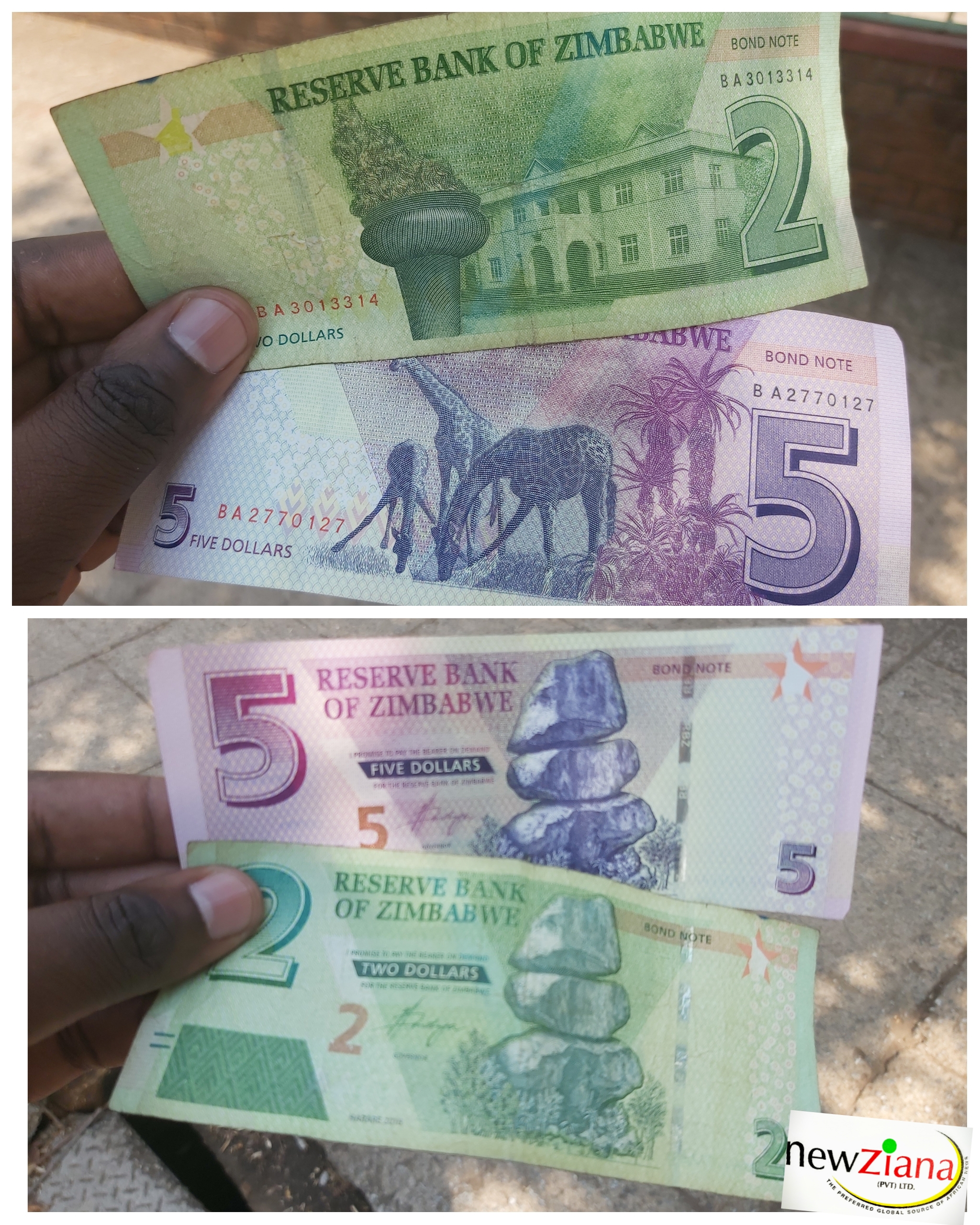Bond notes to be gradually removed from circulation
Share

Harare (New Ziana) – Bond notes and coins will continue being used as legal tender in Zimbabwe for a limited period of time alongside the new Zimbabwe dollar notes which are being put into circulation this month, a senior government official has said.
Last week, the Reserve Bank of Zimbabwe (RBZ) announced the introduction of new bank notes by mid-November as it moves to end long running cash shortages in the economy.
Zimbabwe has endured biting cash shortages for years now, leading to the birth of a thriving parallel market where cash is sold at premiums as high as 50 percent in exchange for electronic money.
In addition, the cash shortages have also led to the creation of a multi-tier pricing system in the economy, depending on the mode of payment, pushing up the cost of goods and services, and ultimately inflation in the country.
The cash shortages became more pronounced early this year when the country scrapped the use of the multi-currency system which had been in place for 10 years in favour of the Zimbabwe dollar which is now the sole legal tender.
However, government did not immediately introduce new replacement local notes, opting instead to retain use of the bond notes and coins which had been introduced as a surrogate to the USD for local transaction purposes.
Finance and Economic Development permanent secretary George Guvamatanga dismissed assertions that bond notes would be immediately decommissioned once the new notes were introduced.
“The bond notes will still work though, so I am not saying come rush and change the bond note (for the new notes), initially the bond notes will work alongside the new notes and coins and they will have the same value,” he said.
“At some point we will cut off, if you continue holding them we will not tell you when we will cut off, but at some point we will cut off and only remain with the new notes and coins.”
Guvamatanga said the main motivation behind the introduction of the new notes was to alleviate the current cash shortages.
“The new currency when we introduced it (in June this year), was not supported by its own notes and coins and we adopted the bond notes and coins as a form of the physical cash to support the new currency. We are now saying the time is now right for us to bring in new notes and coins which support the currency which is already there,” he said.
The new $2 and $5 Zimbabwe dollar bank notes amounting up to ZWL$1 billion will be gradually injected into the market to avoid fuelling inflation.
The new ZWL$2 and ZWL$5 notes will be green and purple in colour respectively while some of their features include the RBZ logo and three balancing rocks on the front.
The two Zimbabwe dollar note, will have the Parliament of Zimbabwe building and the eternal flame as main features on the back side while the five Zimbabwean dollar will have an impression of three giraffes and three palm trees on the back side.
Guvamatanga said the introduction of the new notes was part of bold reforms that government was pursuing.
The reforms, he said, would yield positive results in the long-run.
“For anyone to believe that let us go on our own (with the reforms) without financial support from anyone, that actually requires boldness and true reformists. For you to make that call you need people who are dedicated to reforms, who are dedicated to making this country right.
“(To say) we will look at our fuel, it is not the right price, we know it will hurt our people but this is the right thing to do. You look at energy, we know it will hurt our people because incomes have not moved in line with the changes but it is the right thing to do if we are going to create the right platform, the right environment for this economy to grow and for our people to have prosperity in the future we have to take this bitter medicine,” he said.
The government has removed subsidies on fuel allowing market forces to determine its retail price, resulting in fuel price hikes almost every week.
On the other hand, government also granted power utility Zesa a 300 percent tariff hike.
New Ziana








